Ever wondered why your macarons didn’t turn out, even though it seemed like you did everything right? This detailed macaron troubleshooting guide should help you figure out what went wrong!
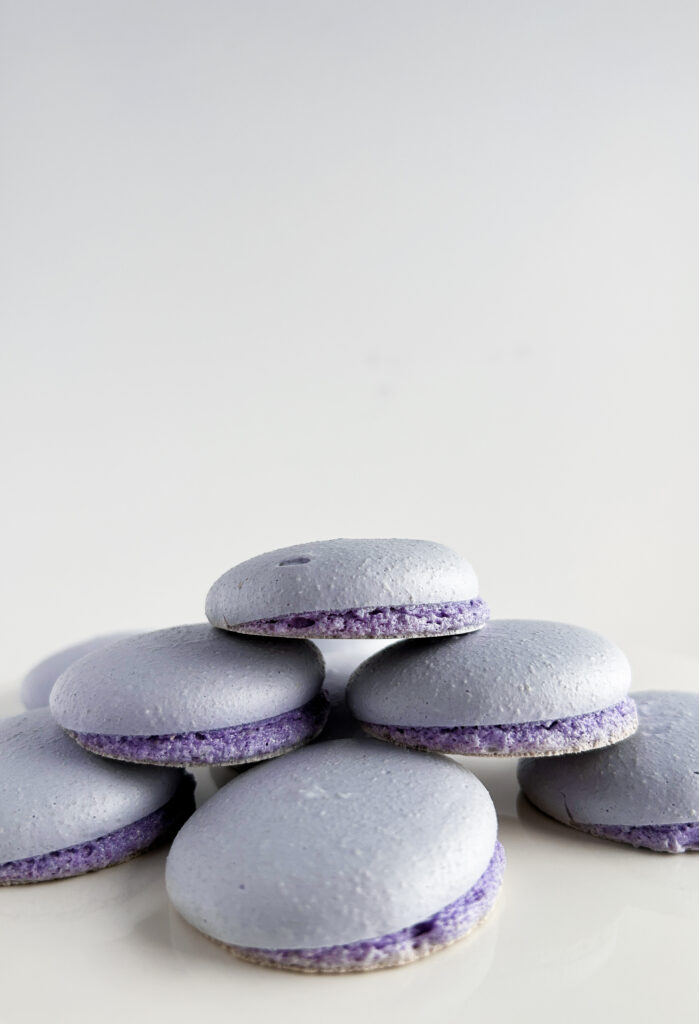

Macarons are such a delicate treat. Their shells should be light, with a bit of bite on the outside and a chewiness in the middle. They shouldn’t be hollow, or too crunchy or too soft. It’s no wonder that the process of making them can get a little complicated!
Over the next few weeks I will be running different tests on my macarons to address as many of the common mistakes as possible. After reading this macaron troubleshooting guide, you should be equipped with the information you need to try that batch of macarons again and succeed!
Note: Every test will be done using the French method
The tests I will be completing on my macarons will be isolated. Meaning I will pick one issue at a time to tackle doing everything else in the macaron making process correctly. I will discuss what might happen when you don’t quite get specific parts of the process right. Each section will be titled by issue, and will list the results that I observed from making that mistake.
Feel free to skip to browse until you find the issue that plagued you! Then get back in your kitchen and try again!
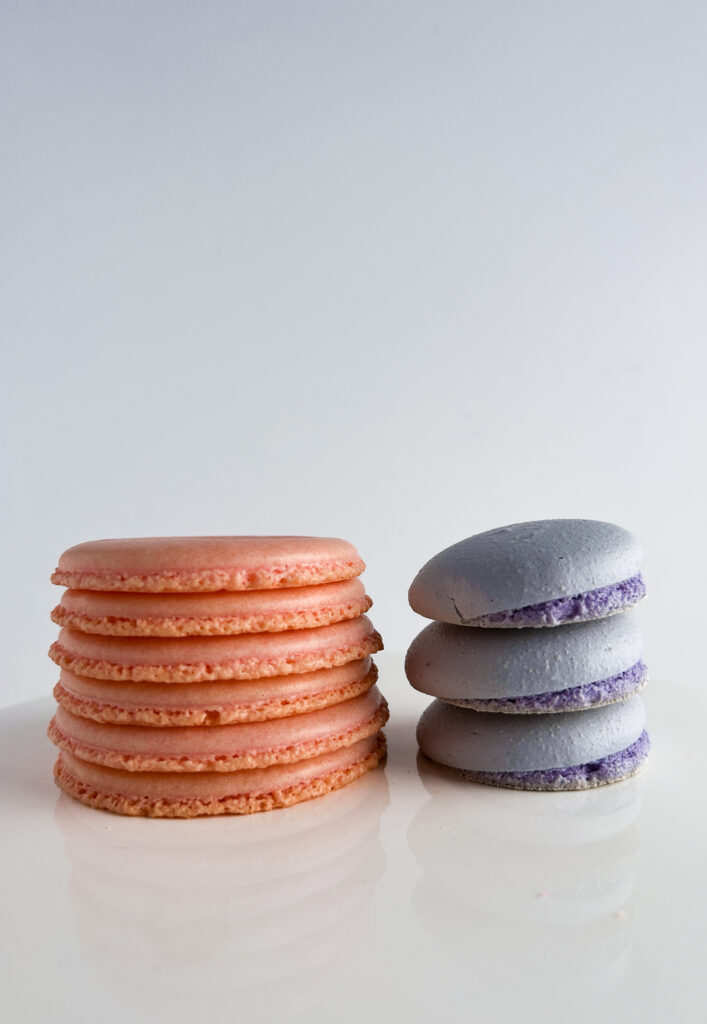
Under Whipped Meringue
Issues it can cause:
- Cracked shells
- Soft shells
- Spread macaron
- Spread feet
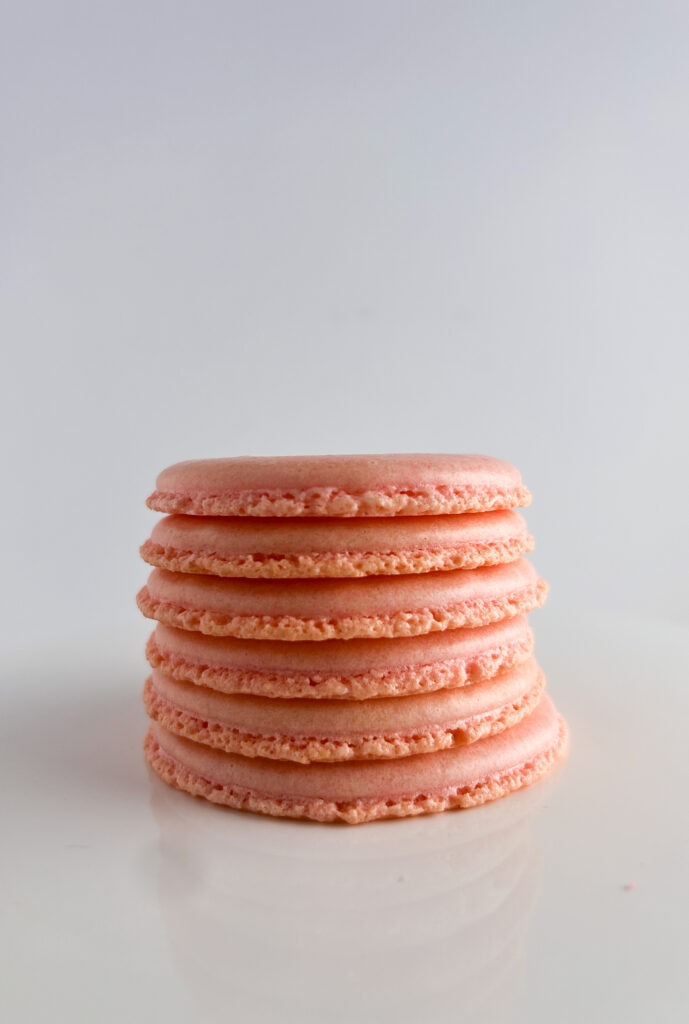
What’s wrong with under whipping the meringue?
Under whipping the meringue for macarons can cause various issues. The biggest issue with under whipping meringue is that the structure that the macaron batter needs can be lost. With a meringue that has not reached stiff peaks, the macaron batter won’t be sturdy enough to hold up in the oven.
This lack of air in the macaron batter can cause the shells to spread too thin and look flat. There is a likely chance that the feet spread as well. Observe the photos of my macarons with underwhipped meringue. They are far too thin and the feet are starting to spread.
How do I know if I’ve under whipped the meringue?
Under whipped meringue will not hold a stiff peak. In other words, when you pull the whisk attachment up from the meringue, the peak will not hold its shape and stand straight up, but rather will droop over due to lack of air incorporated in the meringue.
How does under whipping affect the macronage?
When it comes to the macaronage with the under whipped meringue, the batter will likely be too runny because of the lack of structure. The temptation may be to keep mixing until it reaches the right consistency (figure 8, ribbon stage, etc.) but really there will be no way to regain that structure needed for a proper macaron.
How to avoid under whipping meringue:
Familiarize yourself with what reaching stiff peaks is when it comes to whipping meringue. Meringue has a wide window of stages. It can be under whipped for a while longer than you think. However, if it seems like it is taking super long for the meringue to stiffen up, there could be some unknown fat present. If the meringue isn’t coming together, it is likely because there is a hint of egg yolk in the whites or residual grease/fat in the bowl. It’s best to start over.
Practice and become comfortable with what a stiff peak is supposed to look and feel like and then try to make your macarons again!
Over Whipped Meringue
Issues it can cause:
- Air pocket inside of the shell
- Grainy surface
- Uneven feet
- Dry center
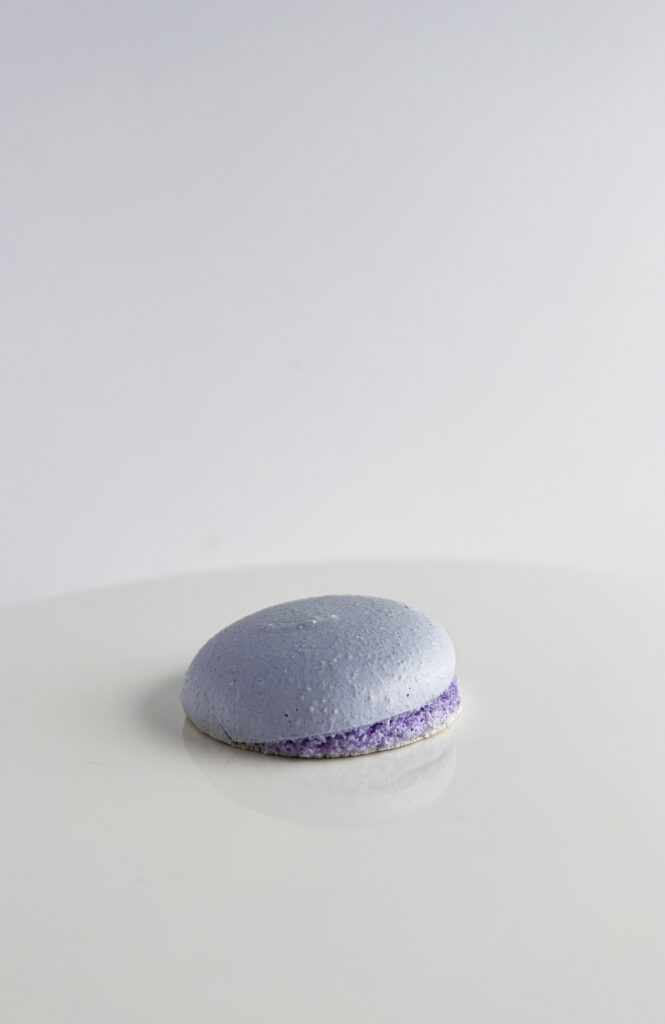
What’s wrong with over whipping meringue?
Over whipped meringue can cause many issues, I might even argue that overwhipping is worse than under whipping the meringue. Over whipped meringue can cause a very grainy outer surface on the macaron shells, it can cause the macarons to rise unevenly, creating uneven feet. Internally, over whipped meringue can cause a wide gap at the top of each shell and a super dry and grainy texture that makes them not too enjoyable to eat!
How do I know if I’ve over whipped the meringue?
I learned a lot by overwhipping my meringue during this isolated test. The first sign that you have overwhipped the meringue is that it will take a VERY long time! It takes roughly 15 to 20 minutes to really over whip a meringue on a 4 or 6 speed using a stand mixer. Over whipped meringue will cling to the whisk attachment so that there is a huge clump of meringue in the whisk. It will start to look dry and grainy before even mixing it with the almond flour and powdered sugar.
How does over whipping affect the macronage?
The macaronage with an over whipped meringue will be difficult. The batter will be extremely stiff and will feel like it’s almost fighting against being mixed in with the dry ingredients. It will take a very long time to deflate the batter enough to get to the ribbon stage, meaning the macaron batter will be over mixed, which is a whole different issue!
How to avoid over whipping meringue?
Check your meringue every so often for stiff peaks. The meringue should clump up on the whisk attachment, but not too much. It should feel structured, but not too hard. And of course, you should be able to turn the bowl upside down over your head without it falling on you.
Stay tuned as I add more macaron troubleshooting sections over the next few weeks. If you would like to make a suggestion for which mistake I should try next, leave me a message here!
Happy Baking!

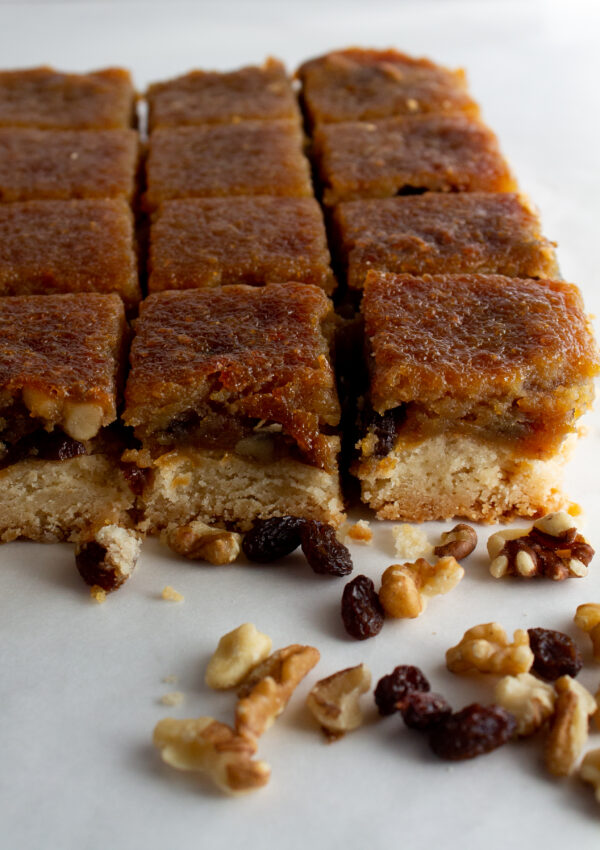


Leave a Reply